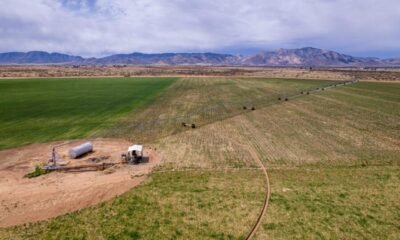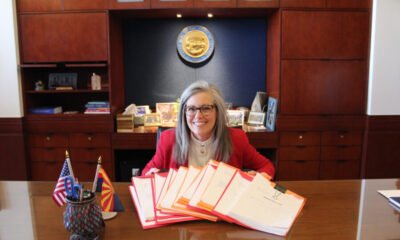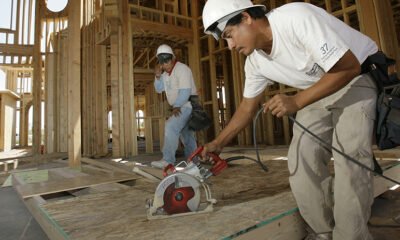Business
Tucson Council to Debate RTA Next Deal & Sales Tax Strategy as Sahuarita Eyes Splash Pad Funding

As summer draws to a close, significant decisions loom for the Tucson City Council. With a potential half-cent sales tax election scheduled for March and a 20-year commitment to the Regional Transportation Authority (RTA) on the table, the Council’s study session this Tuesday is set to address these critical issues.
City Manager Tim Thomure clarified that the sales tax initiative is intended to complement the RTA Next plan, emphasizing it does not serve as a replacement. This stance marks a noteworthy shift after the Council expressed skepticism about continuing its partnership with the RTA. Previous discussions indicated a possible withdrawal from the multi-jurisdictional body, with council members openly hesitant about staying involved.
The revived sales tax proposal aims to allocate 65 percent of the revenues toward public safety and 35 percent towards social services, which includes financing for affordable housing developments. Key allocations would include 17.5 percent for homelessness and housing improvement, 16.75 percent for community resilience, and significant funds for police hiring and technological advancements in public safety.
Tucson’s strategy reflects an evolving perspective on crime prevention. Previous polarized views positioned hard-line enforcement against advocates for community investment. Today’s model, under Police Chief Chad Kasmar’s leadership, integrates both approaches to foster crime reduction while promoting public investment in neighborhoods plagued by violence.
Housing remains a pressing concern for Tucson. A recent investment of over $50 million into upgrading Tucson House will provide vital housing units, yet some council members argue that public funding alone cannot bridge the growing housing gap. The city’s plan emphasizes facilitating private sector involvement in developing affordable units.
While rent prices soar, with two-bedroom apartments averaging $1,200 monthly, the city’s framework includes rehabilitating existing housing and subsidizing impact fees for developers. Arizona’s low-tax status and limited social services underscore the urgent need for innovative housing solutions. The absence of robust state programs leaves local governments to tackle the housing crisis.
Amid discussions on transportation funding, Tucson’s officials grapple with the impending expiration of a 20-year half-cent sales tax and its implications. Currently, the proposed RTA Next plan suggests Tucson would receive just over half of the available funds, despite generating around 66 percent of the sales tax. Concerns persist regarding equitable distribution and funding adequacy.
Retired Gen. Ted Maxwell has proposed a compromise to address Tucson’s concerns, promising an additional $330 million if revenue projections materialize. However, this deal awaits ratification from the RTA Board, which has yet to convene.
In tandem with transportation considerations, the Council will review an updated Fire Code during the upcoming session. Notably, the amendment mandates fire watch personnel at large gatherings, explicitly requiring the use of off-duty Tucson firefighters.
Furthermore, the city seeks to address a shortage of medical professionals through a $6.3 million match of federal funds aimed at sustaining local medical training programs. This investment hopes to bolster the workforce at hospitals and medical centers.
In neighboring Sahuarita, the Town Council plans to negotiate a lease with Southern California 3D printing firm ATAG Inc. This potential partnership could bring approximately 20 new jobs to the area and reflects a growing interest in emerging technologies.
Conversely, budget overruns mar the development of a new splash pad at Anamax Park, with estimated costs ballooning to $1.5 million. Critics question the substantial investment, particularly concerning a restroom that has now escalated to $293,000.
As Tucson and Sahuarita navigate these complex issues, the outcomes will significantly impact their respective communities. The City Council’s decisions this week will lay the groundwork for addressing pressing social and economic challenges in the region.

















